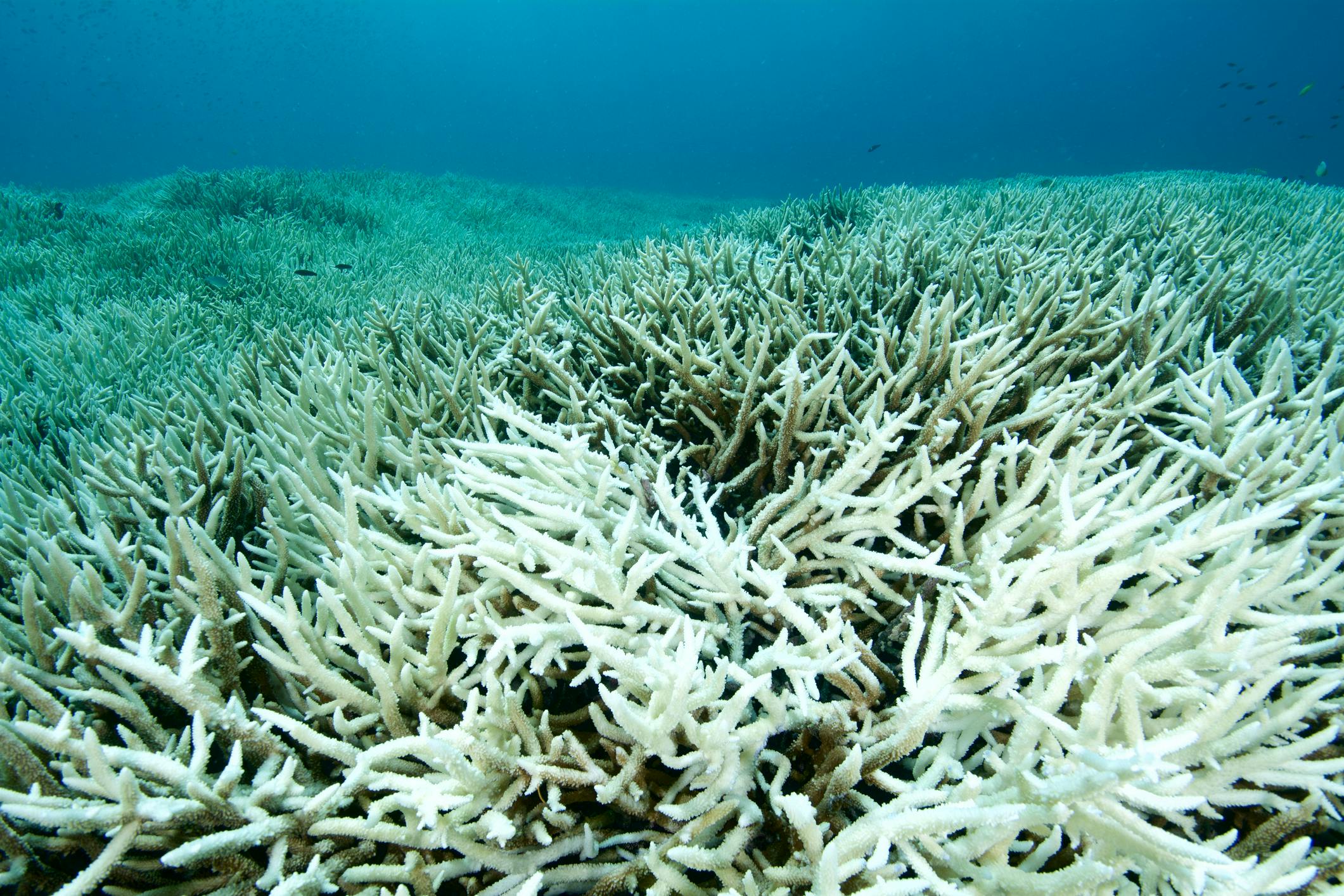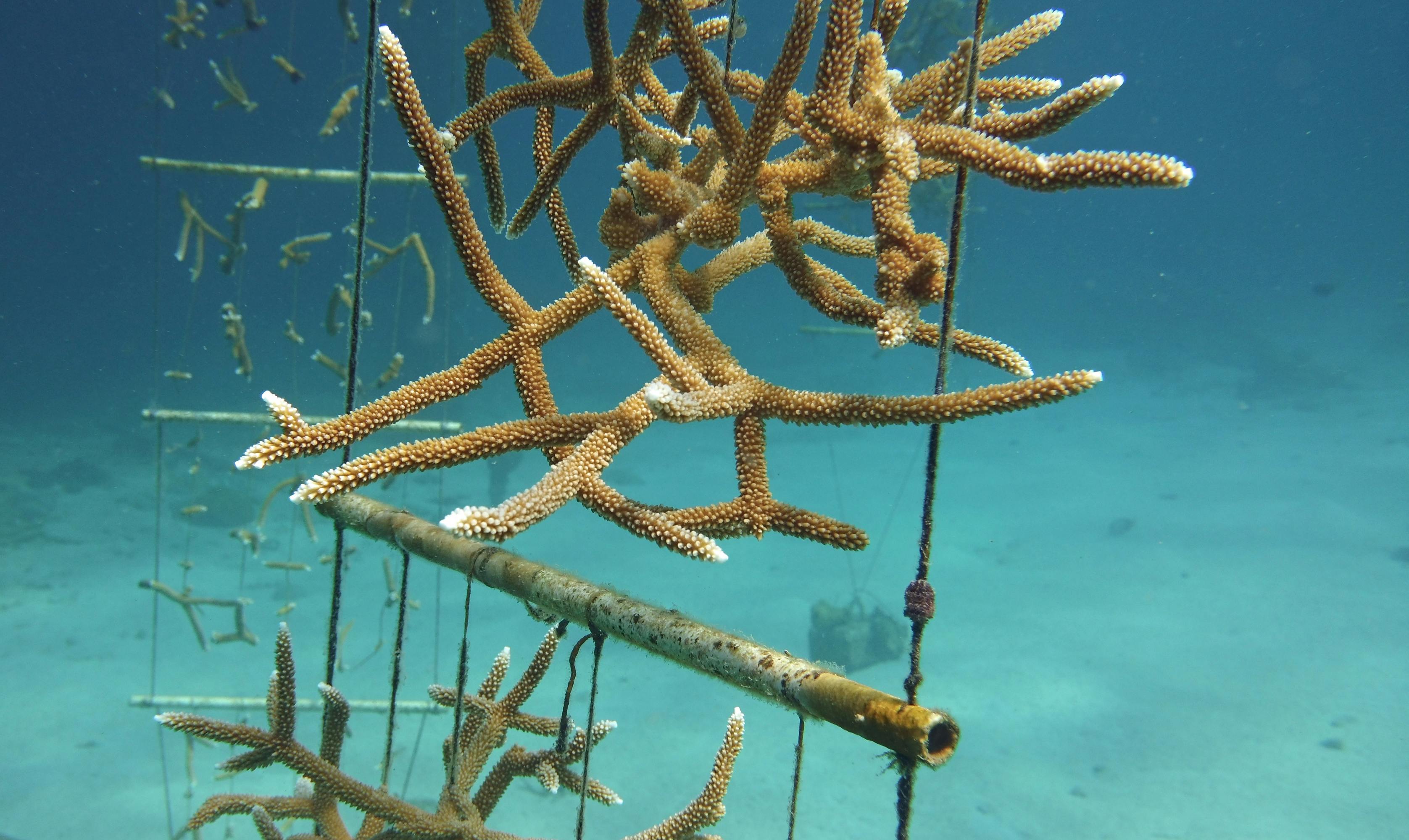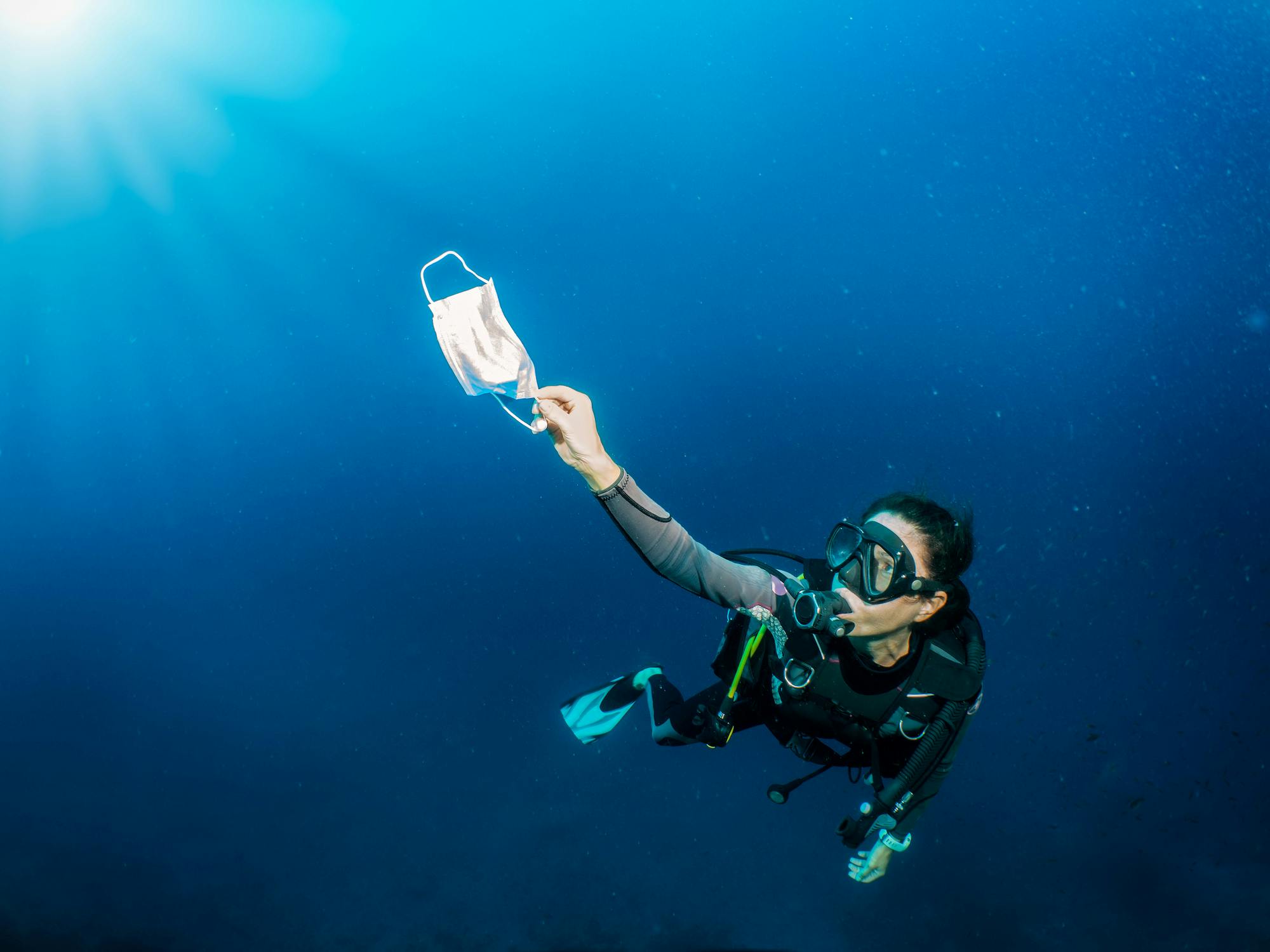Free Shipping on orders of $49+ | Signup for Direct Rewards
Free Shipping on orders of $49+ | Free Store Pickup | Signup for Direct Rewards
Free Shipping on orders of $49+ | Signup for Direct Rewards
Free Shipping on orders of $49+ | Free Store Pickup | Signup for Direct Rewards

Scuba diving can either be harmful to the environment or beneficial to the environment depending on how we go about it. Obviously, as divers and lovers of the ocean and nature, we want to be on the positive end of that spectrum. We want to protect the environments we visit and support their abilities to thrive. But how do we know if our actions are harmful or helpful? Sometimes something that seems quite benign can have a harmful effect. And something that is helpful can be overlooked simply because we don’t yet know about it. We’re here to help by sharing some sustainable diving practices.
It’s no longer uncommon knowledge that the coral reefs are in trouble, that man-made debris and plastic pollution have detrimental effects on sea life, and that the rising water temperatures are constantly changing marine animals and plants habits and habitats. The homeostatic balance has been dwindling in the ocean and should it continue, we’ll soon have nothing but rocks to see when we dive. The good news is that we aren’t at an irreparable place yet. While it may seem like too much for one diver to take on, the good news is that you’re not the only diver with the desire to help and the will to change their diving practices to help the ocean and its inhabitants thrive. Not only will it be a more beautiful and rewarding experience for us as divers, but the planet as a whole has a greater likelihood of balancing out and surviving the blight that humans have unintentionally caused throughout the earth.

Your actions, big and small, make a difference. Even picking up small shells off the sea floor can be harmful, so we can start by “taking only pictures and leaving only bubbles,” ensuring the only things we take with us that we didn’t have before we jumped in are photos we took and debris we may have found.
Another way we can support the sea is by becoming a better diver. By improving buoyancy control and finning techniques, we can better ensure that we aren’t kicking or bumping into (thus, harming) the reef or flopping around like a bouncing bowling ball in a china shop. So make sure you get your diving practice in, even researching and educating yourself about better buoyancy and finning techniques.

Don’t touch or feed animals or plants. We’ve all seen the videos of divers and freedivers gracefully gliding their hand along the side of a dolphin or shark or playing with an octopus. Yeah, don’t do that. As a recreational diver, the only time you should touch an animal is when you’re redirecting a shark away from you (calmly press the nose down and to the side) or untangling an animal from netting or fishing line. Additionally, feeding animals teaches them to look to humans for their food and can be disruptive to their habitat. One of the most sustainable things we can do as divers is simply leave the underwater world alone. Don’t touch, don’t chase, don’t feed, just watch from a respectful distance.
This will seem obvious but, don’t litter. Make sure you know exactly where your granola bar wrapper is or where your stainless steel water bottle is (is it secure or rolling around the boat deck?). Far too many boaters still toss their cigarette butts in the water (stop that!). Everything that comes on the boat or beach with you should make it back to where it needs to be, not floating in the sea.
You can take very specific action towards a more sustainable scuba lifestyle by getting involved with conservation organizations. There are plenty of organizations out there that need volunteer divers to jump in and help out. Research some local conservation organizations, what they do, and if they could use volunteers. It’s a great way to go diving, work on your skills, and do something positive for the ocean and environment. Land locked? Consider donating to an aquatic cause of your choosing. Trust us, there are plenty out there (which is great news for the ocean!).
Be mindful about who you dive with, and try to dive with eco-conscious dive operations. Feel free to ask a dive operation what their anchoring policies and local support practices are. Do they anchor down all willy-nilly, careless of the reef below? That’s not the charter for you. If they’re serious about their anchoring policies, they’ll have ample information ready to share with you. They may also have specific conservation practices or organizations they support. Perhaps they host underwater clean-up events regularly. That is the dive operation for you, the sustainable diver.
Oh, your chosen charter operation hosts dive clean-ups? Participate in one! This is a great way to connect with like-minded divers looking to help heal the ocean while enjoying time in the water. It’s an inspiring experience as well to see how many of us there are excited to take the plunge and hold hope for the ocean’s health.
As sustainable divers ourselves, we’re pretty shocked that non-reef-friendly sunscreen is even still on the market. That leads us to our final point, use reef-friendly sunscreen. These are mineral-based sunscreens that do not harm the reef or marine life. The effects of chemical sunscreens on marine life are not ideal and do not fall within the realm of sustainable diving. Many dive operations do not allow chemical sunscreen on board and will have reef-safe sunscreen for you to use.
Dive in with gear that’s sustainable and made from eco-conscious brands and materials. This can be a hard one. There is a lot of plastic involved in the scuba gear industry. Many brands have started to eliminate unnecessary plastics and neutralize their carbon footprints in whatever ways they can—using either more natural or recycled materials. It’s worth a look to explore what practices a company implements before you pick their gear. If they are implementing these sustainable practices, that information can sometimes be readily available somewhere on the brand’s website. Otherwise, if you’re unsure, reach out to the company and ask!

Take a moment and think of all the scuba divers, freedivers, and snorkelers in the world. Then think about their scuba masks, just their masks. Then think about all the plastic containers those masks came in just to be thrown out after the diver purchased the mask. Whether the diver recycles the plastic or not, that’s a lot of plastic—and that’s just the masks! Mares has thankfully realized this and switched from plastic packaging to biodegradable mask boxes made from sugar cane pulp. Additionally, they’ve eliminated unnecessary plastic from other gear packaging and their shipping process as well, even switching over from PVC packaging stickers to paper ones. If you’re looking for dive gear that’s made by a company that keeps the planet in mind, Mares does just that.
Another company that’s committed to environmental action is BARE. BARE has made significant efforts and strides in ensuring their wetsuits are free from PFCs. What are PFCs? Also known as “forever chemicals,” PFCs, or perfluorinated/polyfluorinated chemicals, are man-made chemicals used in the manufacturing of many items from kitchenware to clothing. They are great at protecting these items from water and grease and increasing longevity, but this protection is costly. These chemicals can detach from their intended products and make their way into the water, air, and soil, polluting it and disturbing the natural chemical order of things. Because these chemicals are made to be hard to break down, they last far too long. That’s why BARE is committed to ensuring that PFCs are never used in their products, finding more natural ways to create high quality gear. This is just one of the many actions that BARE takes to perform in a more environmentally-friendly way.
Where you shop for this gear matters, too! When you buy your mask in its biodegradable mask box but it ends up in a plastic bag on the way out the door, that kind of defeats the purpose, right? Divers Direct is a dive gear center that has taken steps towards more environmentally sustainable practices. From supporting and promoting earth-conscious brands to ensuring only reef-safe sunscreen is sold in our stores to using only paper bags and reusable, biodegradable bags, we’re just getting started in our journey to more sustainable business practices. Our business was built by divers for divers, and we want a thriving aquatic ecosystem for divers to explore for generations. So we know the importance of sustainability and are continually working on doing more for the planet.
To conclude our journey through sustainable scuba diving, you have to have faith that even one diver, even one piece of rubbish cleared from the sea floor, even one marine animal left in peace, can make a huge difference on the health and sustainability of the ocean (and the earth as a whole). As long as we have hope to turn things around and the will to get started and make more sustainable actions, we can make it happen together.
Is scuba diving good for the environment?
Scuba diving can be amazing for the environment when the sustainable practices mentioned above are implemented. Though if we eat our surface interval snack from a plastic bag while on the boat and let that bag float along the boat deck freely until it lands in the sea… or if we take a dive charter that has poor anchoring practices and destroys the reef with every anchor down… or if we chase after sea life to try to pet it… these things will result in scuba diving not being good for the environment. It’s all up to you.
What is eco-friendly scuba diving?
Eco-friendly diving is diving with the ocean’s health in mind. That could be diving for scientific purposes or coral reef volunteer activities. That could simply be mindfulness around the kind of gear you buy—is it sustainably made? Eco-friendly scuba diving is simple—acknowledge the impact of our actions on the environment and practice actions that protect or, at the very least, do not harm the environment.
What is sustainability?
Sustainability is the ability of a process to be maintained over time. Building sustainable habits through our activities nurture a sense of homeostatic balance in the environment.
How to practice buoyancy control and finning techniques?
Since we know that practicing good buoyancy and finning can have a less harmful effect on the environment, it’s important to develop and maintain that practice. We go about that by, simply, diving! Look up videos on “finning techniques scuba diving” on YouTube and be amazed by the amount of information that’s available. The same goes for buoyancy: searching “buoyancy control scuba diving” will provide you with enough information to start these practices. Staying educated and practicing regularly will improve these techniques and ensure you’re diving in a more sustainable way.
How to educate others about sustainability and scuba diving?
When we feel like we’re doing something good for the world, we want to share it with others and help them do good, too! Hey, the more the merrier! It’s always important to remember not to come off too strong or aggressive in our sharing, and sometimes it’s even better to simply live your good work and be an example that many others will naturally follow.